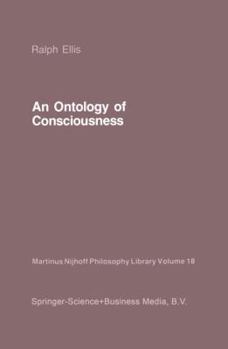An Ontology of Consciousness
Select Format
Select Condition 
Book Overview
The object of this study is to find a coherent theoretical approach to three problems which appear to interrelate in complex ways: (1) What is the ontological status of consciousness? (2) How can there be 'un- conscious, ' 'prereflective' or 'self-alienated' consciousness? And (3) Is there a 'self' or 'ego' formed by means of the interrelation of more elementary states of consciousness? The motivation for combining such a diversity of difficult questions is that we often learn more by looking at interrelations of problems than we could by viewing them only in isola- tion. The three questions posed here have emerged as especially prob- lematic in the context of twentieth century philosophy. 1. The question of the ontological status of consciousness The question 'What is consciousness?' is one of the most perplexing in philosophy-so perplexing that many have been motivated to proceed as though consciousness did not exist. If William James was speaking rhetorically when he said "Consciousness does not exist," 1 many behaviorists of the recent past were not. 2 James meant only to imply that consciousness is not an independently existing soul-substance, along- side physical substances. He did not mean that we do not really 'have' consciousness, and he did not provide final resolution for the problem of the causal interrelations between consciousness and the physical realm (e. g., our bodies). Many recent philosophers and psychologists, however, try to proceed as though these problems did not exist.
Format:Paperback
Language:English
ISBN:9048182980
ISBN13:9789048182985
Release Date:October 2010
Publisher:Springer
Length:205 Pages
Weight:0.68 lbs.
Dimensions:0.5" x 6.1" x 9.2"
Customer Reviews
0 rating





